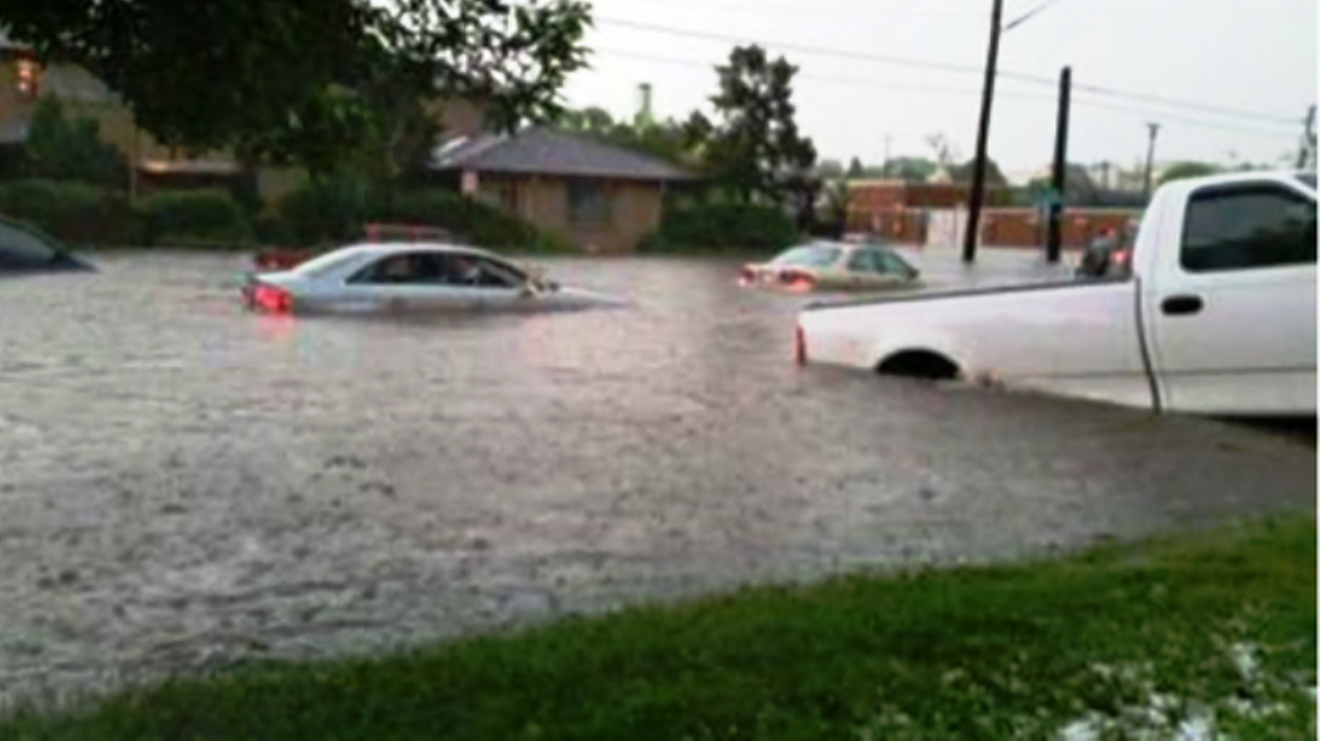A lawyer for Denver residents challenging a $300 million stormwater project says that city officials are being excessively secretive about the case, declining to provide more than 7,400 pages of documents and maintaining that the internal processes that brought the project into being should be shielded from outside scrutiny.
Plaintiffs' attorney Aaron Goldhamer recently filed a document in Denver District Court indicating that he plans to challenge what he calls the city's "incredibly broad assertion" of the deliberative process privilege, which the city's attorneys insist allows them to withhold the materials. The matter appears headed for a showdown at a discovery hearing in the lawsuit on June 5.
City engineers say the Platte to Park Hill Stormwater Systems program is needed to protect northeast Denver neighborhoods from flooding during a hundred-year storm event. But opponents contend that the primary beneficiary of the improvements appears to be the controversial I-70 expansion through east Denver planned by the Colorado Department of Transportation, which is helping to fund the drainage work. The project also offers flood relief for industrial areas flanking the highway and targeted for future development, as well as for one of Mayor Michael Hancock’s legacy projects: a billion-dollar makeover of the National Western Complex.
Neighborhood groups in the affected areas have objected to several components of the project, including a fifteen-block open channel to be dug through a Superfund site in the Cole neighborhood and an expanded outfall at Globeville Landing. The clients Goldhamer represents, including Park Hill resident and former Colorado attorney general JD MacFarlane, are suing over a planned stormwater detention area at City Park Golf Course, a move that will close the golf course for more than a year and require bulldozing hundreds of trees. The lawsuit contends that the project would convert park land to non-park uses, in violation of the Denver City Charter.
Earlier this year, city councilman Rafael Espinoza, who voted against the hike in stormwater fees that's helping to fuel the project, sought to join the lawsuit as an additional plaintiff. The city attorney's office objected, arguing that Espinoza had been part of "privileged" internal discussions about the project. (Judge Michael Vallejos ruled that Espinoza could not be a plaintiff.) The city has also sought to extend the concept of deliberative privilege to a wide array of e-mails, memoranda and other internal communications about the stormwater project; the list of exempted materials submitted to the court, briefly summarizing the nature of each document without divulging its content, runs to 222 pages.
"Disclosure of these communications could have a chilling effect on our comments and recommendations and would discourage frank discussion between the City Staff and final decision makers in the future," declares an affidavit by Jennifer Hillhouse, a project manager for Denver's Department of Public Works.
The city's position is that the documents are "pre-decisional" — that is, since they don't reflect final, official actions on the project, they are privileged parts of the deliberative process. Goldhamer contends that the city hasn't provided enough information about why each and every one of the 7,400-plus pages would be harmful if disclosed — and what it is, exactly, that the city doesn't want the public to know.
"In my discussions with city officials, they say it's very important for government to be transparent with the people," Goldhamer observes. "But then they do this."
[
{
"name": "Air - MediumRectangle - Inline Content - Mobile Display Size",
"component": "12017618",
"insertPoint": "2",
"requiredCountToDisplay": "2"
},{
"name": "Editor Picks",
"component": "17242653",
"insertPoint": "4",
"requiredCountToDisplay": "1"
},{
"name": "Inline Links",
"component": "18838239",
"insertPoint": "8th",
"startingPoint": 8,
"requiredCountToDisplay": "7",
"maxInsertions": 25
},{
"name": "Air - MediumRectangle - Combo - Inline Content",
"component": "17261320",
"insertPoint": "8th",
"startingPoint": 8,
"requiredCountToDisplay": "7",
"maxInsertions": 25
},{
"name": "Inline Links",
"component": "18838239",
"insertPoint": "8th",
"startingPoint": 12,
"requiredCountToDisplay": "11",
"maxInsertions": 25
},{
"name": "Air - Leaderboard Tower - Combo - Inline Content",
"component": "17261321",
"insertPoint": "8th",
"startingPoint": 12,
"requiredCountToDisplay": "11",
"maxInsertions": 25
}
]












